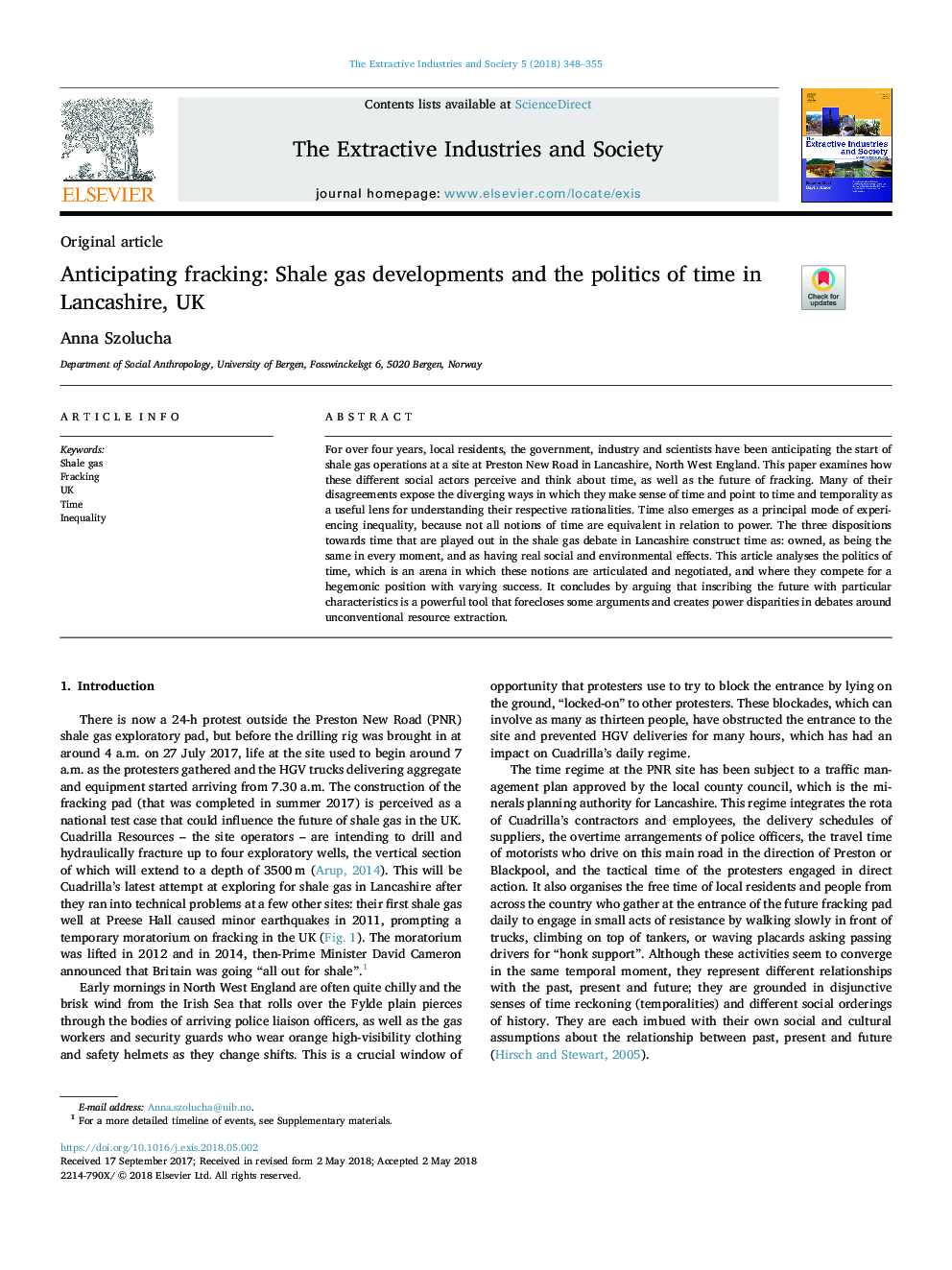| Article ID | Journal | Published Year | Pages | File Type |
|---|---|---|---|---|
| 7454140 | The Extractive Industries and Society | 2018 | 8 Pages |
Abstract
For over four years, local residents, the government, industry and scientists have been anticipating the start of shale gas operations at a site at Preston New Road in Lancashire, North West England. This paper examines how these different social actors perceive and think about time, as well as the future of fracking. Many of their disagreements expose the diverging ways in which they make sense of time and point to time and temporality as a useful lens for understanding their respective rationalities. Time also emerges as a principal mode of experiencing inequality, because not all notions of time are equivalent in relation to power. The three dispositions towards time that are played out in the shale gas debate in Lancashire construct time as: owned, as being the same in every moment, and as having real social and environmental effects. This article analyses the politics of time, which is an arena in which these notions are articulated and negotiated, and where they compete for a hegemonic position with varying success. It concludes by arguing that inscribing the future with particular characteristics is a powerful tool that forecloses some arguments and creates power disparities in debates around unconventional resource extraction.
Keywords
Related Topics
Life Sciences
Environmental Science
Management, Monitoring, Policy and Law
Authors
Anna Szolucha,
